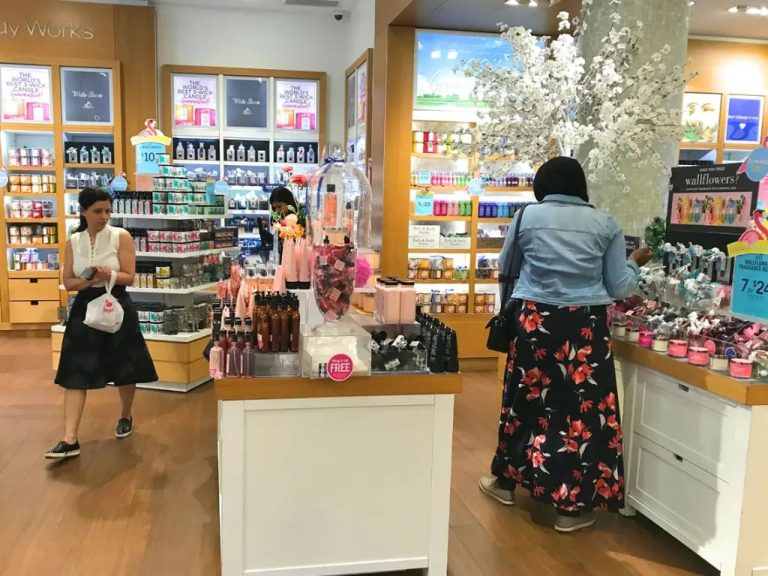What Scent Makes A House Smell Clean?
A clean scent is a fragrance that evokes feelings of freshness, cleanliness, and hygiene. When you walk into a space and it smells clean, it gives the impression that the area has been freshly cleaned or laundered. Clean scents are universally associated with the absence of dirt, bacteria, and impurities. This article explores the most popular clean scents used in homes and why we psychologically associate certain smells with cleanliness and freshness.
The purpose of this article is to provide readers with an overview of the scents most commonly used to make a space smell clean. It will cover the top clean scent choices like lemon, pine, and lavender as well as why these smells impart feelings of cleanliness. The article will also offer tips for making your own custom clean scents using essential oils.
Most Popular Clean Scents
When it comes to house cleaning, certain scents are universally associated with a clean home. The top three scents that typically come to mind are lemon, pine, and lavender.
Lemon is one of the most popular clean scents. The bright, citrusy smell is reminiscent of cleaning products like bleach and other disinfectants. Lemon essential oil is commonly used in all-purpose cleaners and can be diffused to make a room smell freshly cleaned. The scent is uplifting and energizing.
Pine is another go-to for clean scents. The crisp evergreen fragrance reminds people of the great outdoors and evokes a sense of purity. Pine scented cleaners and air fresheners are ubiquitous thanks to pine’s cleansing aromatic properties. Pine essential oil or a pine-scented candle can make a space smell scrubbed clean.
Lavender has long been used for its calming properties, but it’s also associated with cleanliness. The floral herbaceous scent is widely used in laundry products and room sprays for its fresh, clean aroma. Diffusing lavender essential oil or using lavender-scented products gives spaces a just-cleaned vibe.
Why We Associate Certain Scents with Cleanliness
Certain scents trigger memories and associations of cleanliness in our brains. This is often due to early memories and experiences where we learned to associate specific smells with the concept of clean.
For example, the scents of lemon, pine, and soap can bring back memories of helping our mothers clean the house as children. We remember the citrus aroma of an all-purpose cleaner and associate that tangy scent with a clean kitchen. The crisp pine smell of floor cleaner creates a connection between the scent and a freshly mopped floor.
Branding and marketing of cleaning products has also wired our brains to link certain smells with cleanliness. Cleaning brands use signature scents in their products that we come to recognize instantly. A whiff of lavender-vanilla Febreze or citrus-ginseng Lysol brings to mind a clean, disinfected bathroom.
When these scents are used consistently in cleaning products over the years, they cement the association between the smell and the concept of clean. So when we encounter these scents, even outside of the context of cleaning, they can instantly trigger a feeling of cleanliness in our minds.
Lemon
Lemon is one of the most universally recognized clean scents. The fresh, bright, and zesty aroma immediately evokes feelings of cleanliness, purity, and freshness. Lemon essential oil and lemon-scented cleaning products have been used for centuries to make homes smell clean and sterile.
The history of using lemon for cleaning dates back to medieval times in Europe, when lemons were first introduced as an exotic fruit from Asia. Women would boil lemon peels along with herbs like rosemary to purify their homes. In the 18th century, lemon became a popular scent for soaps and perfumes to leave skin and fabrics smelling fresh.
Today, lemon is still one of the most popular scents for cleaning products and air fresheners. Scientifically, the limonene molecule found in lemon peel oil triggers a response in our brains that puts us at ease. Studies show that lemon aroma improves mood, reduces stress, and enhances concentration. The zesty and energizing scent creates a perception of cleanliness and refreshment.
Lemon essential oil is a natural antibacterial agent as well, making it an effective disinfectant. It’s no wonder the bright, sunny aroma of lemons continues to be associated with clean, hygienic spaces hundreds of years after its initial discovery.
Pine
Pine has become one of the most recognizable clean scents. Its fresh, forest-like aroma is commonly used in household cleaners and air fresheners. Pine’s clean scent can likely be traced back to its use as an antiseptic and cleaning agent.
Pine oil and pine tar have been used for centuries to disinfect and deodorize surfaces, wounds, and even the air during plagues. The antimicrobial effects of pine come from compounds like terpenes found in pine resin. When pine is used in household cleaners, it serves as a natural disinfectant.
The nostalgic scent of pine also triggers memories of the great outdoors. Pine forests exude an inviting, fresh aroma that is both energizing and soothing. Using pine-scented products evokes this sense of a clean, open environment. Pine’s woodsy fragrance reminds us of pristine natural settings away from dirt and clutter. This is why pine has become so strongly associated with the idea of cleanliness.
Lavender
Lavender is a popular scent associated with cleanliness. It comes from the flowers of the lavender plant, which is native to the Mediterranean region. Lavender has been used for centuries for its pleasant floral aroma and medicinal properties.
The use of lavender dates back to ancient Rome, Greece, and Egypt. The Romans used lavender to scent baths and in perfumes. English lavender became popular in the 16th century and was often used to scent laundry and fabrics. Queen Elizabeth I was known to use lavender water and linens scented with lavender.
Today, lavender essential oil and flowers are used in soaps, candles, room sprays, and other household cleaning products. The soothing floral scent of lavender is believed to have calming effects. Studies have shown that inhaling lavender essential oil can decrease anxiety and stress levels. The aroma of lavender triggers the limbic system, the part of the brain that controls emotions and memories. This gives lavender its calming and relaxing qualities.
When we smell lavender, we often associate it with clean bed linens and laundry. The floral aroma induces feelings of freshness and cleanliness. Using lavender-scented products throughout the home leaves rooms smelling freshly laundered and sterile. That’s why lavender has become such a popular scent for cleaners, soaps, and other household products. The scent provides that just-cleaned feeling in any space.
Other Popular Clean Scents
Besides lemon, pine, and lavender, there are other scents that are commonly associated with cleanliness. Some examples include:
Vinegar – Vinegar has antibacterial and antifungal properties, making it a great cleaning and disinfecting agent. The sharp, tangy scent of vinegar is instantly recognizable and associated with thorough cleaning.
Eucalyptus – Eucalyptus essential oil has a fresh, minty, earthy aroma. It contains compounds like citronellol that have antibacterial effects. Eucalyptus oil is often used in cleaning products and air fresheners.
Tea tree – Tea tree oil has a medicinal, camphor-like scent. It acts as a disinfectant and can eliminate odor-causing bacteria. The clean smell of tea tree is commonly used in soaps, detergents, and other cleaning products.
Baking soda – Baking soda or sodium bicarbonate has a slightly salty and alkaline scent. It can neutralize odors and has gentle abrasive properties to clean surfaces. Many homemade cleaners use baking soda both for its cleaning power and familiar clean smell.
Experimenting with these and other scents can help you create homemade cleaners with the perfect aroma for your home.
Creating Your Own Clean Scent
One way to create your own signature clean smell at home is with essential oils and diffusers. Essential oils can be purchased to highlight particular scents that make you feel your home is cleaned and tidy. Here are some ways to make custom clean scents:
Combine Essential Oils
Buy individual essential oils like lemon, pine, lavender, eucalyptus, tea tree, and more. Then experiment with mixing a few drops of different oils to create the perfect cleansing aroma for you. For example, a bright and fresh blend might contain lemon, grapefruit, and peppermint. Or you could mix lavender and vanilla for a soothing clean scent. Determine which single notes or combinations have the clean smell you want.
Use a Diffuser
Once you’ve chosen your essential oil blend, use a diffuser to circulate the scent. Diffusers vaporize and spread the oils in the air. You can find varieties like ultrasonic, evaporative, nebulizing, and heat diffusers. Place your diffuser in high traffic areas so the clean fragrance will permeate the space. Set the diffuser to run when you’re actively cleaning to reinforce the fresh sensations.
Display Natural Elements
In addition to the diffused oil, you can display natural items that complement the clean smell. For example, place lemons, limes, pinecones, eucalyptus, lavender, fresh flowers, or herbs visibly around your home. Seeing these ingredients will add to the overall cleansing effect.
Experiment with essential oil mixes, diffuser settings, and displayed botanicals to design your own signature scent that says “clean” in your mind. Soon your homemade clean fragrance will give your home the just-tidied smell you love.
When to Use Each Scent
Different clean scents work better in certain rooms and spaces.
For kitchens, lemon is the perfect clean scent. The bright, zesty aroma helps energize and uplift. Lemon also counters cooking odors. Diffusing lemon essential oil or using lemon-scented cleaners leaves kitchens smelling fresh.
Pine makes an ideal scent for bathrooms. Its forest-like fragrance evokes thoughts of the great outdoors. Pine also helps mask unpleasant odors. Pine cleaners and air fresheners can make bathrooms smell cleaner.
Lavender works well for bedrooms. Its floral aroma promotes relaxation which aids sleep. The soothing scent also sets the tone for rest. Using lavender linen sprays, pillow mists, or essential oils will make bedrooms smell freshly laundered.
Consider custom clean scents for living rooms, dens, offices, and other frequently inhabited rooms. A blend of scents like citrus, herbs, wood, flowers, tea and vanilla helps create an inviting atmosphere for guests.
Conclusion
Household scents are an important part of creating a welcoming and clean environment. Certain fragrances like lemon, pine, and lavender have become strongly associated with cleanliness over time. Using these scents, whether from essential oils, candles, or cleaning products, can make your home smell fresh, tidy, and pleasant.
Beyond just smelling clean, household scents also affect our mood, productivity, and feelings of comfort in a space. Choosing complementary fragrances that you enjoy can turn your house into a soothing oasis. Experiment with scented cleaners, air fresheners, dried flowers, simmer pots, and more to find your ideal clean scent profile. With a little thoughtfulness, you can make your home feel like a spa each time you walk through the door.



